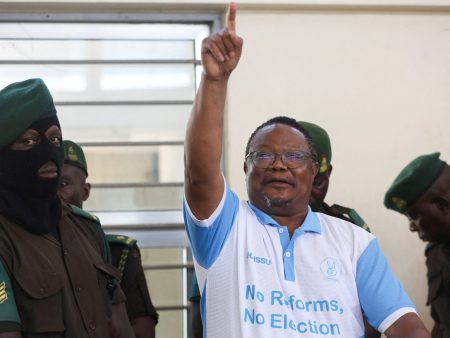The arrest of Luigi Mangione, a suspect in the shooting of UnitedHealthcare CEO Brian Thompson, has reignited debate over the accessibility and potential danger of extremist literature, particularly the “Unabomber Manifesto.” Mangione’s Goodreads profile reportedly featured a positive review of the manifesto, authored by Ted Kaczynski, who carried out a series of deadly bombings motivated by his anti-technology ideology. This potential link between the shooting and Kaczynski’s writings raises the question of whether such texts should be subject to restrictions or even bans, despite First Amendment protections. The manifesto’s enduring influence, particularly among fringe groups and online communities, further complicates the issue, prompting a renewed examination of the balance between free speech and public safety.
The core of the debate revolves around the efficacy and constitutionality of banning extremist materials. Proponents of free speech argue that censorship is not only ineffective but also potentially counterproductive, driving individuals further into extremism and amplifying the notoriety of the banned content. They point to the “Streisand effect,” where attempts to suppress information often lead to increased dissemination, and emphasize the crucial role of open dialogue and critical analysis in countering harmful ideologies. Furthermore, the First Amendment provides strong legal protection for even offensive or dangerous speech, making a ban on the Unabomber Manifesto unlikely and potentially unconstitutional.
Conversely, some argue that the potential for such manifestos to incite violence outweighs free speech concerns. The manifesto’s historical influence on acts of terrorism, such as Anders Behring Breivik’s attack in Norway, demonstrates the tangible risks associated with its unrestricted availability. They suggest that while a complete ban might be difficult to enforce, limiting its spread, particularly online, could help mitigate the risk of inspiring future acts of violence. This approach would involve collaboration with tech companies and content moderators to restrict access while simultaneously ensuring researchers studying extremism retain access for analysis and counter-narrative development.
Experts offer diverse perspectives on the issue. Patrick R. Riccards, Executive Director & CEO of Life After Hate, argues against bans, emphasizing the importance of open dialogue and the potential for censorship to backfire. David Keating, President of the Institute for Free Speech, echoes this sentiment, highlighting the First Amendment implications and the Streisand effect. Joshua Fisher-Birch, a researcher at the Counter Extremism Project, acknowledges the manifesto’s popularity among various extremist groups and its potential to inspire violence.
Aaron Terr, Director of Public Advocacy at the Foundation for Individual Rights and Expression (FIRE), firmly supports First Amendment protections, arguing that banning the manifesto would set a dangerous precedent for censorship. Amy Cooter, Director of Research at the Center on Terrorism, Extremism, and Counterterrorism, Middlebury Institute, notes the practical difficulties of implementing a ban and acknowledges the existing First Amendment protections while also suggesting that limiting the public spread of manifestos, without hindering research access, might be a viable strategy.
The debate over the Unabomber Manifesto reflects a broader struggle to reconcile free speech principles with the need to address the spread of dangerous ideologies. While a complete ban faces significant legal and practical challenges, there is ongoing discussion about alternative approaches, such as content moderation and counter-speech initiatives, aimed at reducing the manifesto’s potential to inspire violence without infringing on fundamental rights. This complex issue requires careful consideration of the potential consequences of both censorship and unrestricted access, with a focus on finding solutions that protect both public safety and freedom of expression. The challenge lies in finding a balanced approach that effectively mitigates the risks posed by extremist content while upholding the principles of free speech that are essential to a democratic society.
The potential link between the UnitedHealthcare CEO shooting and the Unabomber Manifesto underscores the enduring influence of extremist ideologies and the challenges they pose in the digital age. While the manifesto itself may not be the sole cause of such acts, its availability and potential to inspire violence warrant careful consideration. The debate over its accessibility reflects a broader societal struggle to address the spread of harmful content online while simultaneously protecting fundamental rights. Finding a solution that effectively balances these competing interests remains a complex and ongoing challenge.
The resurgence of interest in the Unabomber Manifesto, particularly among younger generations online, necessitates a renewed examination of the potential risks associated with its widespread availability. While historical examples like the Breivik case demonstrate the potential for such texts to inspire violence, the question of how to address this risk without impinging on free speech remains contentious. The ongoing debate underscores the need for a nuanced approach that considers both the potential dangers and the importance of open dialogue in combating extremism.
The arguments against banning the manifesto often center on the ineffectiveness of censorship and the potential for it to backfire, driving individuals further into extremism and amplifying the notoriety of the banned content. The Streisand effect, where attempts to suppress information often lead to its increased dissemination, is frequently cited as a reason to avoid bans. Furthermore, proponents of free speech argue that open dialogue and critical analysis are essential tools in countering harmful ideologies, and that censorship can undermine these efforts.
Conversely, those who advocate for restrictions on the manifesto’s availability emphasize the potential for it to incite violence and the need to protect public safety. They argue that while a complete ban might be difficult to enforce, limiting its spread, particularly online, could help mitigate the risk of inspiring future acts of violence. This approach would require collaboration with tech companies and content moderators to restrict access while ensuring that researchers studying extremism are not hindered in their work.
The debate over the Unabomber Manifesto highlights the complexities of addressing extremist content in the digital age. There are no easy answers, and finding a solution that effectively balances free speech with public safety requires careful consideration of the potential consequences of both censorship and unrestricted access. The ongoing discussion underscores the need for a nuanced approach that considers both the dangers posed by extremist ideologies and the importance of upholding fundamental rights.










